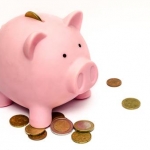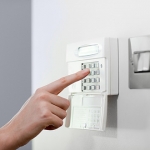BBQ Safety

Canadian’s love to barbecue. Not only to celebrate the arrival of temperatures in which we can actually bear to be outside but also for the culinary diversity we sorely miss in those frigid winter months.
However, it is very important to ensure proper barbecue safety in order to avoid property damage or injury.
Before you start your barbecue for the year make sure the burner ports and burner orifice are free of rust, dirt, cobwebs, dust, and other debris. Any obstructions can be dangerous. You can use a pipe cleaner or a wire to make sure there are no blockages.
Check to see that the hose is not damaged or cracked. A cracked hose can send out a jet of propane, which you do not want to get ignited. It is very important that you do not use a match or lighter to check for leaks.
Brush a mixture of 50% soap and 50% water onto all hoses and connections. If you can see bubbles there is a leak. Tighten or repair these connections until there are no bubbles rising.
If you do not feel comfortable testing your propane or gas barbecue yourself you can check the yellow pages in your area for a certified fuel-appliance repair person.
Always have the lid open when lighting your barbecue. First open the fuel valve at the cylinder, then turn on your burners, and then light the burner using the igniter button. If you do not have an igniter button, insert a long match or barbecue lighter through the side burner hole. However, if you are using a match make sure to have the match lit before you turn on the gas and burners.
If the burner does not ignite right away turn off the gas and wait at least five minutes before trying again. Leave the lid open while you are waiting.
If you are using a propane barbecue it is important to remember that in Canada propane cylinders must be inspected and re-qualified or replaced every 10 years. There should be a date stamp on the collar of your cylinder indicating when it was last qualified.
If your tank is rusty or damaged it may need to be replaced prior to that 10 year mark. If you are not sure if your propane tank is reliable then we recommend not taking unnecessary risks. Replace it. Turn in the old propane cylinder so that is can be properly purged and recycled.
Prior to the first filling your propane cylinder must be purged or air and moisture.
The law requires that only a properly trained and certified attendant may fill a tank. Also, the cylinder will not be filled over 80% of its capacity. The attendant will not fill a tank that is outdated or damaged.
Tips for transporting your propane cylinder:
- As soon as you disconnect the hose from the cylinder always thread the special plug into the outlet.
- Carry the cylinder in an upright position with the safety valve on top.
- Never put your propane cylinder in a closed vehicle. If you do need to transport it in your trunk block the lid open. It is better to transport it in the passenger compartment of the vehicle with the windows open and the tank secured so it will not tip or move during the drive.
- Never leave the propane cylinder in your car with the windows closed. Heat builds quickly and could cause an explosion.
- Make sure the cylinder is secured in place on the barbecue before reconnecting. This is also a good time to check the “O” ring (if your connection has one) to make sure there are no fractures or cracks. If there is damage replace the “O” ring before reconnecting.
- After you have reconnected test for leaks using the soap and water solution. Tighten connections until there are no bubbles.
- Never smoke while handling or while you are near a propane cylinder.
In order to simplify things, here is a list of the Do’s and Do Not’s of gas barbecuing:
Do’s
- Always turn the gas valve on first.
- Gas hoses should be kept away from hot surfaces and hot grease.
- Keep children and pets away from the grill and the gas valve.
- Keep your loose clothing away from the hot grill.
- Turn off the valve first when you are finished to allow the gas in the hose to be burned off. Turn off the burner second so no gas remains trapped in the hose.
- Let your barbecue cool completely before covering it.
Do Not’s
- Leave the barbecue unattended while in use.
- Let your burners and grill accumulate grease. Clean the grills and burner regularly to decrease the risk of a serious grease fire.
- Put water on a grease fire. This will only cause the flames to flare and potentially cause a bigger problem.
- Use your barbecue in an enclosed space, like a garage. For both ventilation and safety reasons your barbecue should be in the open and at least 10 feet away from windows and doors.
- Place your barbecue next to wooden fences or walls, beneath a combustible roof such as in a gazebo or under the roof overhang of your house, or even under a tree with low branches. Be cautious about the area behind the barbecue as hot gases escape from the back of the grill and this could create a fire hazard.
- Do not store your spare propane cylinders underneath your barbecue or inside any structure as excess heat could cause the cylinder to release overpressure and propane. Store it outside in a shaded area, not in your garage.
- Use wood, charcoal briquettes, barbecue starter fluid or gasoline in combination with your propane or natural gas barbecue. This could result in a highly flammable and unstable situation and could cause significant property damage, injury, or even loss of life.
- Use your gas appliances for any other purpose other than that which they were originally intended for use. If they are designed for cooking , do not use them as a heater.
Even if you take the right precautions accidents can still happen. If you burn yourself, run the affected area under cold water for five minutes. If your burn is serious and you have any blistering or charring seek immediate medical attention.
The smell added to propane is a strong, distinct odor like rotten eggs or boiling cabbage. If you suspect your gas barbecue is leaking or if you smell an odor shut off the gas supply and do not light the grill. Turn off the gas supply and leave the area immediately if you suspect a leak.
Stay safe and enjoy the many delicious meals of BBQ season.


